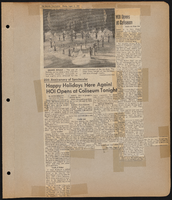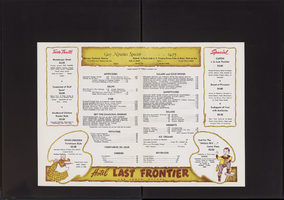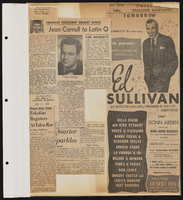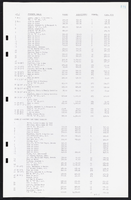Search the Special Collections and Archives Portal
Search Results
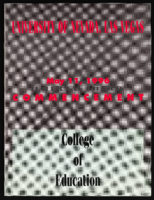
University of Nevada, Las Vegas (UNLV) College of Education 33rd commencement program
Date
Archival Collection
Description
Commencement program from University of Nevada, Las Vegas Commencement Programs and Graduation Lists (UA-00115).
Text

Anita Tijerina Revilla oral history interview: transcript
Date
Archival Collection
Description
Oral history interview with Anita Tijerina Revilla conducted by Marcela Rodriguez-Campo on October 09, 2018 for the Latinx Voices of Southern Nevada Oral History Project. In this interview, Revilla discusses her early life in San Antonio, Texas. She talks about her decision to make education a priority, figuring out the college application process on her own, and her initial interest in social justice. Revilla talks about how her critical consciousness was developed, and her pedagogical approach to teaching. Revilla describes her role in the 2006 May Day march, advocating advocating for the queer community, and disrupting oppressive systems to increase educational access for students. Lastly, Revilla discusses ethnic studies and the history of inequality in the United States.
Text
Black Experience in Southern Nevada
The Black Experience in Southern Nevada Oral History Project features a core set of twelve interviews donated to the UNLV Libraries in the early 1970s. In 1978 the UNLV Libraries Special Collections and Archives received a grant to edit and transcribe the interviews from the U. S. Office of Education, Department of Health, Education, and Welfare and distributed by the Nevada State Library. The project was completed by Elizabeth Nelson Patrick between 1978 and 1979 with an abstract of the interviews distributed statewide.
Corporate Body
Elizabeth Harrington Collection of Essays
Identifier
Abstract
This collection contains the original drafts of the thirteen essays that Elizabeth Harrington wrote about her life in early Las Vegas, Nevada. These articles were written from her memory and experiences of life in Las Vegas beginning in the early 1900s, and were published in the Nevadan section of the Las Vegas Review-Journal from 1975-1979.
Archival Collection
Pat Feaster oral history interview
Identifier
Abstract
Oral history interview with Pat Feaster conducted by Claytee D. White on July 1, 1996 for the African Americans in Las Vegas: a Collaborative Oral History Project. In this interview, Feaster relates how her mother made the decision to leave Fordyce, Arkansas for better economic opportunity and moved to Las Vegas, Nevada in 1942. She describes travelling across the country, living in a one-room structure in the Westside of Las Vegas, and attending the Westside School. She discusses her mother's employment at the Red Rooster Restaurant and then at the Algiers Hotel. She talks at length about her own educational journey after leaving school at fifteen, then returning for her GED and later, a college degree after the birth of her fifth child. She discusses how the decision to improve her education helped her develop a twenty-six year career at the Clark County Health District. She also discusses the Fordyce Club and many important personalities in Las Vegas' Black community.
Archival Collection

